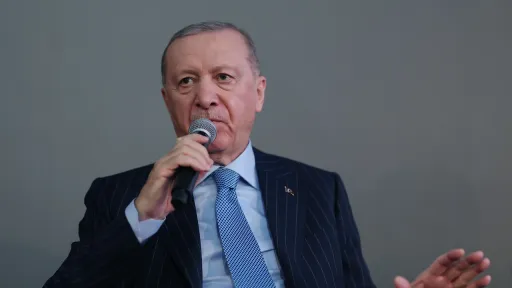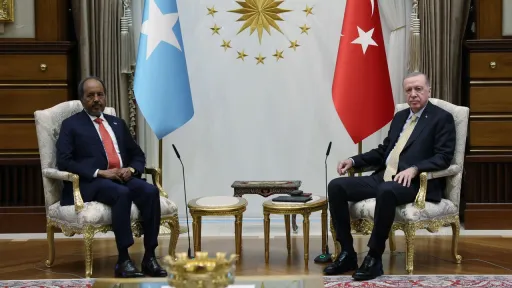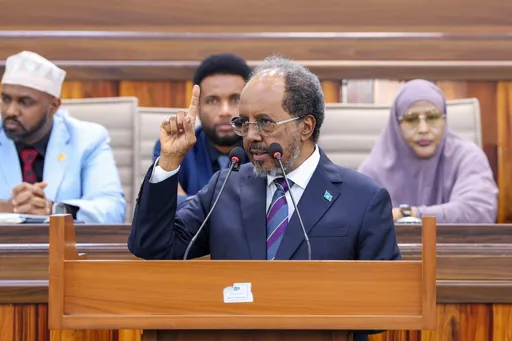By William F.S. Miles
Today marks twenty-two years since the terrorist attacks that convulsed America and changed the world: September 11, 2001. Twenty-two years before that, I had just returned to the US from a two-year sojourn in an obscure West African nation that most Americans, probably, had never before heard of: Niger.
Now, of course, Niger is famous – or infamous, depending on one’s perspective – on account of the recent military coup that overthrew the democratically elected government of the country and put in its place a National Council for the Safeguard of the Nation - in other words, a junta.
One of the main reasons given by the coup-makers for their takeover of power in Niamey was President Bazoum’s supposedly failed strategy to combat terrorism along and inside his country’s borders. I was, coincidentally, back in Niger during the coup for a mission with the country’s National Boundary Commission.
On a continent that has experienced over a hundred military takeovers since decolonisation about more than six decades ago, Niger’s five coups do not particularly stand out.
That terrorism is invoked by coup-makers as justification is, however, a new reality. How much the world, and Africa in particular, has changed since the plotters of Al Qaeda toppled the World Trade Center twin towers, effectively declaring war on the United States?
It did not take long for the US to rout Osama Bin Laden and his followers from their haven in Afghanistan, triggering a strategic quandary: where would such terrorists emerge next? To where would they flee, seek haven, and regroup?
Uranium conduit
American military strategists anticipated it would be a Muslim swath of the globe with porous boundaries, government incapacity, and widespread poverty. Et voilà – the Sahel. Hence was launched, as early as 2002, the Pan-Sahel Initiative (PSI).
Initially the PSI grouped, under US auspices, Niger, Chad, Mali and Mauritania in an effort to forestall the emergence of the so-called ‘’Islamist terrorism’’ in this patch of West Africa.
This was the context when Niger first shot to the fore of American consciousness, declared by President George W. Bush in 2003 as provenance - with Al Qaeda as conduit - of uranium for Saddam Hussein’s alleged weapons of mass destruction programme. This, as it turned out, was totally false.
But no matter, the damage was done: the Sahel would henceforth be understood as an important link in the global terrorist network, one that would see the rise of the so-called Islamic State (IS) and its various branches, from Iraq and Syria (ISIL) to the Maghreb (Ansar al Sharia) to West Africa (ISWA).
Eventually, the PSI morphed into the Trans-Sahara Counter-Terrorism Partnership (TSCTP), which today encompasses twelve countries of the Sahel and Maghreb. Whether the premises of PSI and TSCTP were well founded or rather served as self-fulfilling prophecies will long be debated among regional specialists and military strategists.
But the upshot is that the locus of terrorism has indeed been migrating from the Near and Middle East to West Africa and beyond. And, linked or not, the degrading of operational capacity of ISIS and Al Qaeda in Iraq and Syria has coincided with the degrading of France’s influence in West Africa.
Possible US loneliness
Francophobia has been the policy de jour for putschists in Burkina Faso, Guinea and Mali – now joined by Niger both in military rule and anti-French sentiment. Such is one of the upshots of the so-called Françafrique, linking louche leaders and entrepreneurs of the former colonies with those of the former coloniser.
The United States is not happy about the prospect of having to replace France as the main foreign anti-terror gendarme, if only in logistical and advisory capacities.
But as the French have had to reposition their troops from Mali to Niger, and now are under pressure to evacuate them from Niger itself, the US may be left alone to carry that burden. Unless it is handed over to the Russians.
Twenty-two years ago, the “planes operation” that had been hatched in a remote mountainous cave complex in Central Asia was executed, to world-shaking proportions. Responsible governments – French, American, and African – have a duty to prevent a similar crime from gestating somewhere.
Similarly, counterterrorism cannot become an excuse for authoritarian takeovers. Nor should it obscure the more chronic challenge facing the vast majority of Africans – underdevelopment.
The author, William F.S. Miles, is a professor of political science at Northeastern University and a former Peace Corps Volunteer (1977-1979) in Niger and a Fulbright Scholar there (1983-4, 1986). He is also the author of ''Hausaland Divided: Colonialism and Independence in Nigeria and Niger'' and ''My African Horse Problem'.'
Disclaimer: The viewpoints expressed by the author do not necessarily reflect the opinions, viewpoints and editorial policies of TRT Afrika.
























